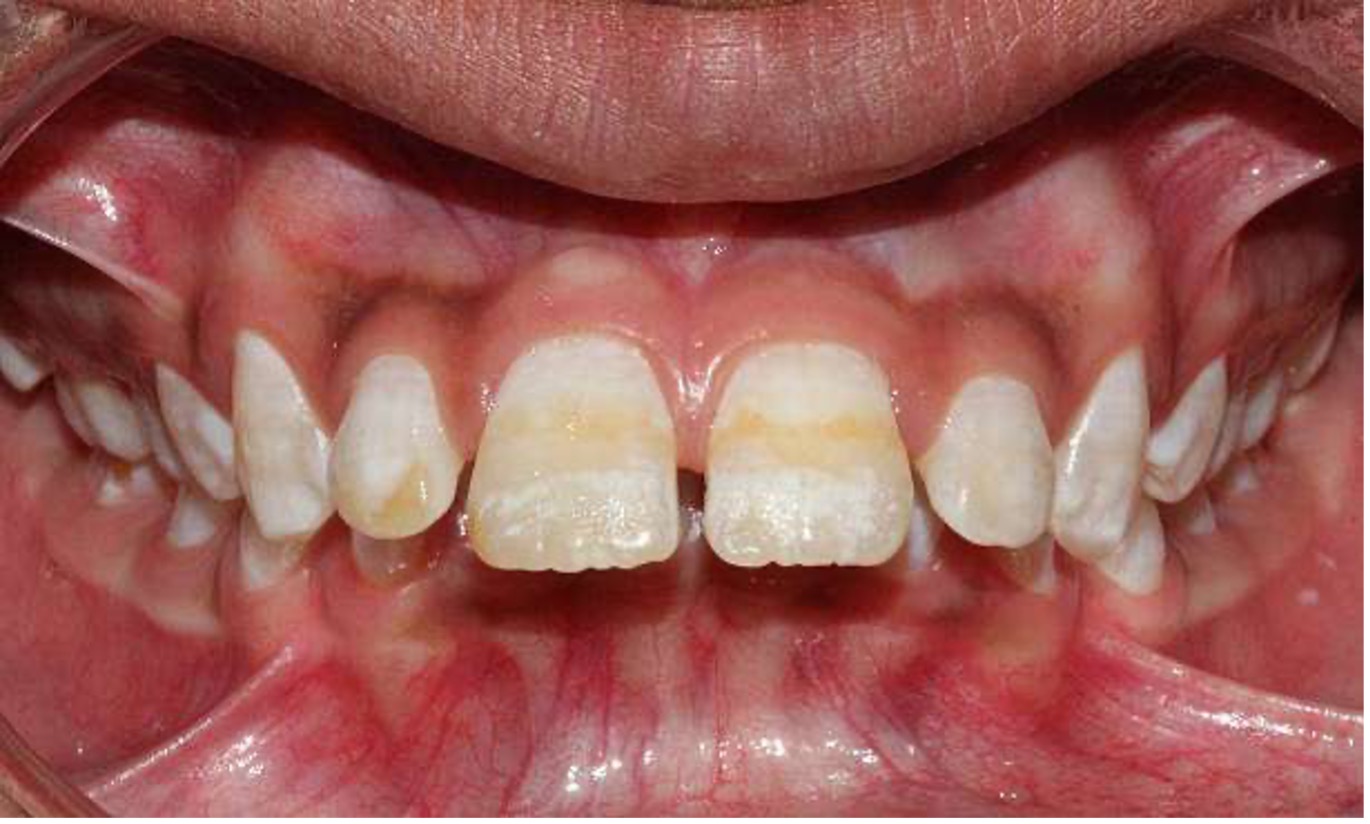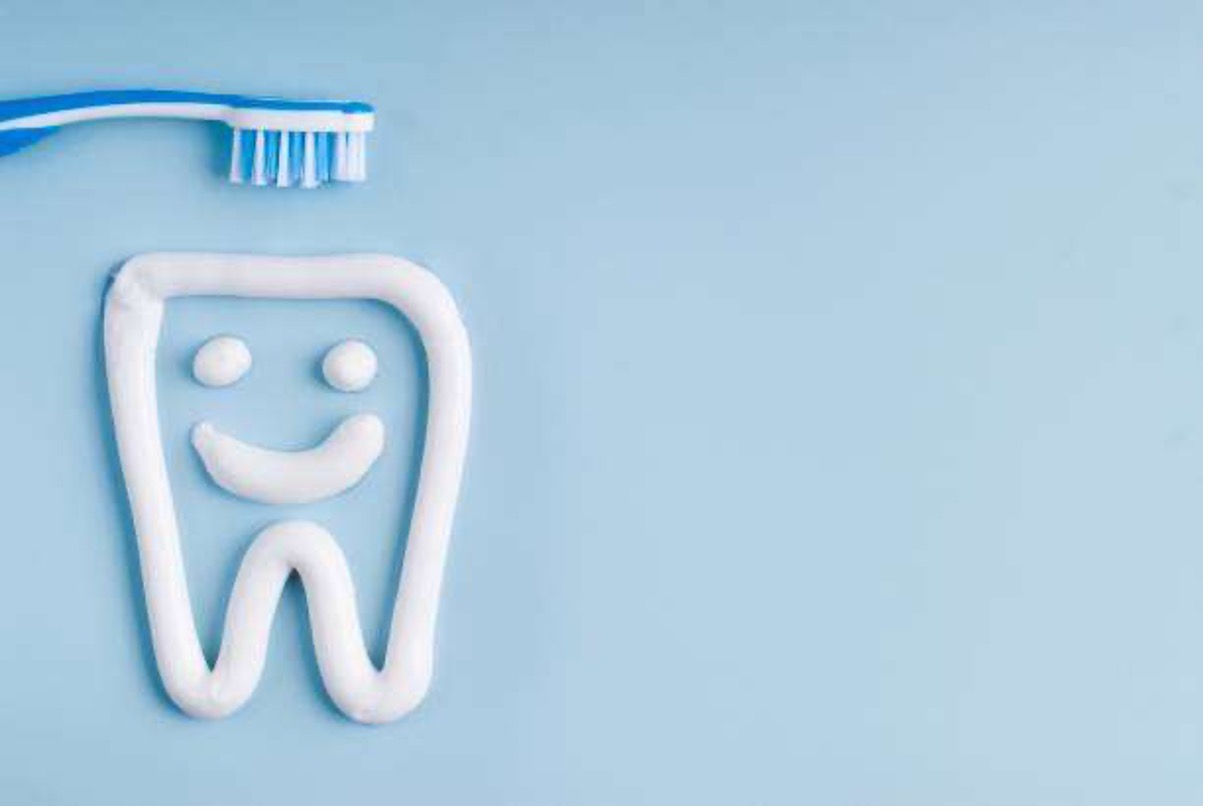

Fluoride is commonly found in man-made products such as toothpaste, mouthwashes, and dental gels. It is also found naturally in water sources, but what exactly is fluoride? Why do we dentists at Crook Log Dental Practice encourage daily use of it? As a parent, should you have any concerns about fluoride consumption?
Fluoride is a naturally occurring mineral. It is the ionic form of the element fluorine.
Around 5.8 million people in England receive fluoridated water. In some areas of the UK, fluoride has been added to the drinking water supply as a public health measure. This brings it up to around 1mg of fluoride per litre of water, a level found to reduce tooth decay.
The decision about whether to add fluoride to the community water supply is made by individual local authorities. In Bexleyheath, Kent, the water companies do not add fluoride to our supply as levels in drinking water in Kent already contain fluoride at 0.12 ppm. Fluoride occurs naturally in soils and rocks in our community.
Over the years, some concerns have been that fluoride may be linked to various health conditions. It is one of the most extensively researched health measures. Reviews of the risks have no convincing evidence to support these concerns. They have discovered that fluoride is one of the most efficient elements in preventing dental decay.
Fluoride is good for dental health. Extensive evidence has proved that fluoride toothpaste and water fluoridation reduce and reverse the progression of existing dental decay (carious lesions). The UK has seen an enormous decline in dental caries over the past 80 years.
You may have heard of a condition called dental Fluorosis which can sometimes occur if a child’s teeth are exposed to too much fluoride when developing. This is due to an excessive amount of fluoride.

Dental Fluorosis is an abnormality of the teeth caused by excessive fluoride intake. It occurs when too much fluoride is consumed while the teeth develop in childhood. Fluorosis can affect the appearance of the teeth in several ways, depending on its severity. Symptoms include:
It’sIt’s uncommon in England and the UK for Fluorosis to be severe enough to seriously affect the appearance of teeth. This is because fluoride levels in water are carefully monitored by the Drinking Water Inspectorate (DWI) and adjusted in each area if necessary.
To check the fluoride water quality in your area, please visit Check your water quality | Help | Thames Water
The chance of developing Fluorosis exists until about age eight because permanent teeth are still forming in children hidden under the gums.
Breastfed infants are unlikely to develop Fluorosis since breast milk is very low in fluoride. Nursing mums and pregnant women don’t pass large quantities of fluoride to their babies.
Parents who feed their babies milk formula should mix low-fluoride or fluoride-free water with powder or liquid concentrate. Pre-made, Ready-to-feed formula contains minimal amounts of fluoride.

For more information please visit Fluoride – NHS (www.nhs.uk)
When we eat and drink, the acids produced by the plaque on our teeth start to break down the minerals in our tooth enamel, a process called demineralisation. Demineralisation leads to small cavities at first but can progress into large areas of decay and, in worst cases, tooth loss. The very early demineralisation stage can be reversed by introducing dental fluoride into the enamel.
There are two ways that fluoride works to protect tooth enamel, systemically and topically.
Topically –Topical (applied to a particular place) fluoride treatments, such as fluoride varnish, can be administered at Crook Log Dental Practice by your dentist in high dosage. Using a lower fluoride concentration, such as mouthwash and toothpaste at home, can also help remineralise enamel.
Systemically – Systemic (affecting the entire body) fluoride is ingested in fluoridated water, foods, or supplements prescribed by a dentist or paediatrician.

A common misperception is that mouthwash isnecessary for your oral health and care routine. Crook Log Dental Practice can explain why this is true only in some cases, but not all.
Most patients in Kent know to brush twice daily, morning and evening, and most will also know they should floss and use interdental brushes daily. But many think that using a mouthwash will complete the perfect at-home oral care routine.
Unless your dentist or hygienist advises for a specific medical reason, mouthwash is not recommended to keep your gums and teeth healthy. Only brushing alone will remove plaque. Mouthwash does not remove plaque. Mouthwash simply freshens your breath.
Many types of mouthwash contain alcohol which can exacerbate dry mouth and lead to irritating sores. A key ingredient to look out for is cetylpyridinium chloride which is found in many types of mouthwash and may cause staining of the teeth and irritation.
Antibacterial mouthwashes containing chlorhexidine may be prescribed by your dentist. This may be for short-term treatment of gum inflammation (gingivitis) or to prevent infection following specific dental procedures such as an extraction. Still, they can cause staining and should not be used daily.
For further information about stain removal and our hygiene appointments, please click here Hygienist Bexleyheath | Dental Hygiene Kent | Crook Log Dental (crooklogdentalpractice.co.uk)
Suppose you have been using mouthwash and find it hard to think about phasing it out of your daily routine. In that case, we recommend a fluoride-based, alcohol-free mouthwash. These are easily purchased in local stores and pharmacies in Bexleyheath.
Use it after meals to wash away food particles and as a quick boost of freshness.
Don’t use mouthwash after you have just brushed your teeth. Mouthwash washes away the fluoride from the toothpaste, which is critical in protecting your teeth.
Chewing sugar-free gum may be a better alternative to mouthwash in some instances as it neutralises the acid in the mouth by stimulating saliva production.
Brushing your teeth daily with fluoridated toothpaste is one of the most effective ways of preventing tooth decay. After brushing your teeth, you should use the method of ”spit don’t rinse” to keep as much of the fluoride paste on your tooth surface.
There is a wide range of toothpaste available containing different levels of fluoride. The amount of fluoride in the toothpaste can be found on the side of the tube and is measured in parts per million (ppm).
Toothpastes containing 1,350 to 1,500ppm fluoride are the most effective. Your dentist may advise you to use higher-strength toothpaste if you or your child is at particular risk of tooth decay. Some toothpaste as strong as 5,000ppm can also be prescribed by your dentist.

In the dental surgery, fluoride can be found in the following products; Toothpaste, cements and fillings, gels and mouthwashes, and particular brands of floss.
Dentists and therapists can also topically apply fluoride varnish in the dental practice. This highly concentrated fluoride is applied to both baby teeth and adult teeth. The process involves painting a varnish containing high fluoride levels onto the tooth’s surface every 6 months to prevent decay. It works by strengthening tooth enamel, making it more resistant to decay.
For further information about preventative dentistry, please click here Preventive Dentistry – Crook Log Dental Practice | Dentist in Bexleyheath, Kent
We have a fantastic team of dentists and hygienists at our Bexley heath-based practice to cater to your oral hygiene needs.
Call our reception team on 020 8303 3838 to book!
Book now (https://uk.dentalhub.online/v1/view/organization/4515/index.html#/perspectives/3)
Back to Blog“Recently I have had RESTYLANE Dermal fillers injected into my lips to make them...”
“I have always been conscious of my teeth and always wanted that “perfect smile”....”
“I have never been happy or confident about my smile since I was a...”
“I had originally chipped my front tooth a long time ago and had it...”
“During a recent holiday, I had a fall, landed on my chin and damaged...”
“I have been Dr Chawich’s patient for about 10 years and have always had...”
“I was very self-conscious about my crooked front teeth even after having them whitened...”
“At the age of 76, my few remaining upper teeth became insufficient and eating...”
“I had my teeth whitened by laser and home moulds and also had a...”
“I am a patient of Dr Khan’s and now have amazing front teeth! Went...”
